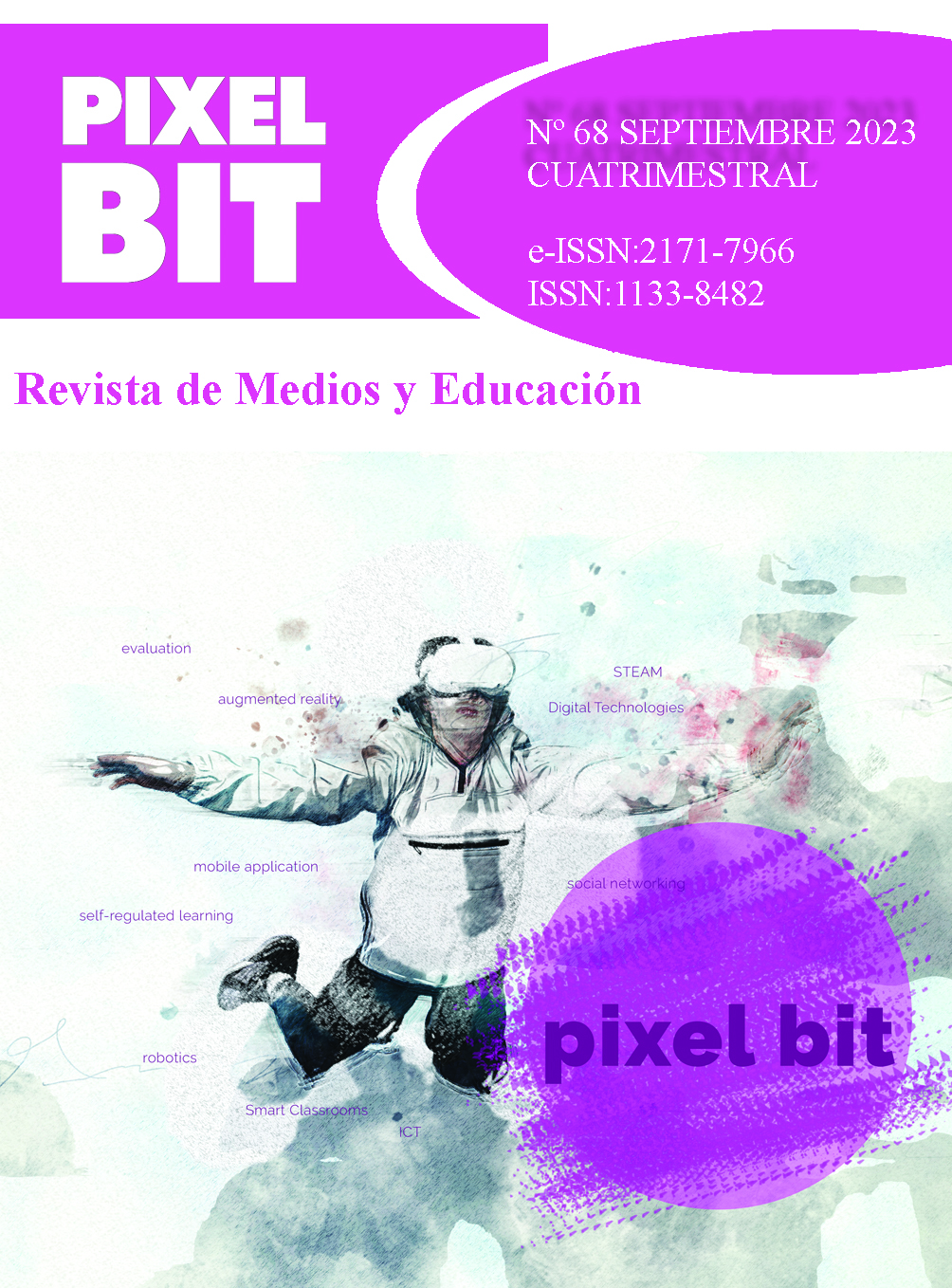Resumen
Como parte de la transformación de la educación, se ha considerado el uso de la tecnología para elevar la calidad en el aprendizaje. Este estudio evalúa un programa experimental que gira en torno a la implementación de podcasts como material de apoyo fuera del aula, con énfasis a favorecer el aprendizaje del vocabulario y la pronunciación del idioma inglés. La investigación con enfoque mixto, utilizó los métodos Audiolingual y el Enfoque Natural bajo un criterio humanista. Participaron cincuenta y dos estudiantes mexicanos de primer grado de una escuela primaria pública estatal, con edades de seis y siete años, divididos de forma natural en un grupo experimental y otro de control. Para recopilar datos cuantitativos y cualitativos se aplicaron varias técnicas: pretest, postest, notas de diario y grupos focales. Los resultados revelaron una mejora significativa en la pronunciación y la adquisición de vocabulario en los alumnos del grupo experimental, superando de manera significativa a los alumnos del grupo de control. Entre otros hallazgos relevantes, destacan el aumento de las habilidades de los niños y las niñas para trabajar con tecnología, el desarrollo de la autonomía y las actitudes positivas de los alumnos por participar en actividades utilizando podcasts para aprender inglés.
Citas
Al-Jarf, R. (2022). Text-To-Speech Software for Promoting EFL Freshman Students’ Decoding Skills and Pronunciation Accuracy. Journal of Computer Science and Technology Studies, 4(2), 19-30. https://doi.org/10.32996/jcsts.2022.4.2.4
Alamri, H. R., & Hakami, H. M. (2022). Exploring perspectives of EFL students on using electronic dictionaries to improve vocabulary learning: a comparative study. International Journal of Curriculum and Instruction, 14(2), 1578–1599.
Alcalde, N. (2011). Principales métodos de enseñanza de lenguas extranjeras en Alemania. Revista de Lingüística y Lenguas Aplicadas, 6, 9-23. https://doi.org/10.4995/rlyla.2011.878
Almaqrn, R. K., & Alshabeb, A. M. (2017). EFL Learners’ Attitudes towards the Proper Pronunciation of English and Podcasts as a Facilitator of Proper Pronunciation. Arab World English Journal, 8(1), 208-219. https://dx.doi.org/10.24093/awej/vol8no1.15
Barcomb, M., & Cardoso, W. (2022). “I found the fish in Pronunciation Quiz #3!” Examining the effect of a game-informed site on young learners’ L2 pronunciation. En B. Arnbjörnsdóttir, B. Bédi, L. Bradley, K. Friðriksdóttir, H. Garðarsdóttir, S. Thouësny & M. J. Whelpton (Eds.), Intelligent Call, Granular Systems, and Learner Data: short papers from Eurocall 2022 (pp. 12-17). Research-publishing.net. https://doi.org/10.14705/rpnet.2022.61.1427
Barreras, A. (2004). Vocabulario y edad: pautas para su enseñanza en las clases de Inglés de Educación Primaria. Aula Abierta, (84), 63-84.
Bartolí, M. (2005). La pronunciación en la clase de lenguas extranjeras. Phonica, 1, 1-27. https://doi.org/10.1344/phonica.2005.1.%25p
Borja-Torresano, S. C., Mascaro-Benites, E. M., & Ulli-Flores, W. E. (2020). Motivación en el uso de podcast para el desarrollo de competencias comunicativas en el aprendizaje del idioma inglés. Dominio de las Ciencias, 6(4), 172-197. https://doi.org/10.23857/pocaip
Cárdenas, C. M., & Ramírez, A. (2021). Uso de podcast en la enseñanza de la lengua inglesa. Revista Boletín Redipe, 10(2), 144-157. https://doi.org/10.36260/rbr.v10i2.1201
Chacón, C., & Pérez, C. (2011). El podcast como innovación en la enseñanza del inglés como lengua extranjera. Píxel-Bit. Revista de Medios y Educación, (39), 41-54.
Heredia, B., Rubio, D., Calderón, D., Ruiz, F., L. O'Donoghue, J., & Guzmán, L. (2015). Sorry. El aprendizaje del inglés en México [Ebook] (1st ed.). Mexicanos Primero Visión 2030.
Khalilavi, M. (2022). Using podcasts in learning English language pronunciation among preintermediate students. Journal of new advances in English Language Teaching and Applied Linguistics, 4(2), 725-738. https://doi.org/10.22034/jeltal.2022.4.1.2
Krashen, S. (2009). Principles and practice in second language acquisition. Pergamon Press Inc.
Kumaravadivelu, B. (2003). Beyond methods: macrostrategies for language teaching. Yale University Press.
Lally, P., Van Jaarsveld, C., Potts, H., & Wardle, J. (2009). How are habits formed: Modelling habit formation in the real world. European Journal of Social Psychology, 40(6), 998-1009. https://doi.org/10.1002/ejsp.674
Larsen-Freeman, D., & Anderson, M. (2011). Techniques and Principles in Language Teaching. Oxford University Press.
Nussbaum, L., Bernaus, M., Caballero, B., Escobar, C., & Masats, D. (2001). Didáctica de las lenguas extranjeras en la educación secundaria. Editorial Síntesis.
Organización de las Naciones Unidas para la Educación, la Ciencia y la Cultura [UNESCO]. (2003). La educación en un mundo plurilingüe. https://bit.ly/43uQJE9
Ramírez, J., Pamplón, E., & Cota, S. (2012). Problemática de la enseñanza del inglés en las primarias públicas de México: una primera lectura cualitativa. Revista Iberoamericana de Educación, 60(2), 1-12. https://doi.org/10.35362/rie6021321
Reyes, M. R., Murrieta, G., & Hernández, E. (2011). Políticas lingüísticas nacionales e internacionales sobre la enseñanza de las ingles en escuelas primarias. Revista Pueblos y Fronteras Digital, 6(12), 167-197. https://bit.ly/3IMiXSZ
Secretaría de Gobernación (2018). Lineamientos de ajuste a las horas lectivas señaladas en el Acuerdo número 592 por el que se establece la Articulación de la Educación Básica. Diario Oficial de la Federación. https://bit.ly/3WFYLbq
SEP (2017). Aprendizajes clave para la educación integral, plan y programas de estudio, orientaciones didácticas y sugerencias de evaluación. SEP.
Solano, I. M., & Sánchez, M. M. (2010). Aprendiendo en cualquier lugar: El podcast educativo. Pixel-Bit. Revista de Medios y Educación, (36), 125–139.
Texidor, R., Reyes, D., & Echevarría, M. (2016). La pronunciación y la enseñanza de inglés en las Ciencias Médicas. Revista Habanera de Ciencias Médicas, 15(2), 269-276.
Wang, Y., & Wen, X. (2023). Nativeness versus intelligibility as goal of English pronunciation teaching in China: Changing attitudes in national syllabi and curriculum standards. Asian-Pacific Journal of Second and Foreign Language Education, 8(17), 1-26. https://doi.org/10.1186/s40862-023-00189-2
Wisniewska, N., & Mora, J. (2020). Can Captioned Video Benefit Second Language Pronunciation?. Studies in Second Language Acquisition, 42(3), 599-624. https://doi.org/10.1017/S0272263120000029
Yürük, N. (2020). Using Kahoot as a skill improvement technique in pronunciation. Journal of Language and Linguistic Studies, 16(1), 137-153. https://doi.org/10.17263/jlls.712669

Esta obra está bajo una licencia internacional Creative Commons Atribución-NoComercial-SinDerivadas 4.0.
Derechos de autor 2023 Pixel-Bit. Revista de Medios y Educación

